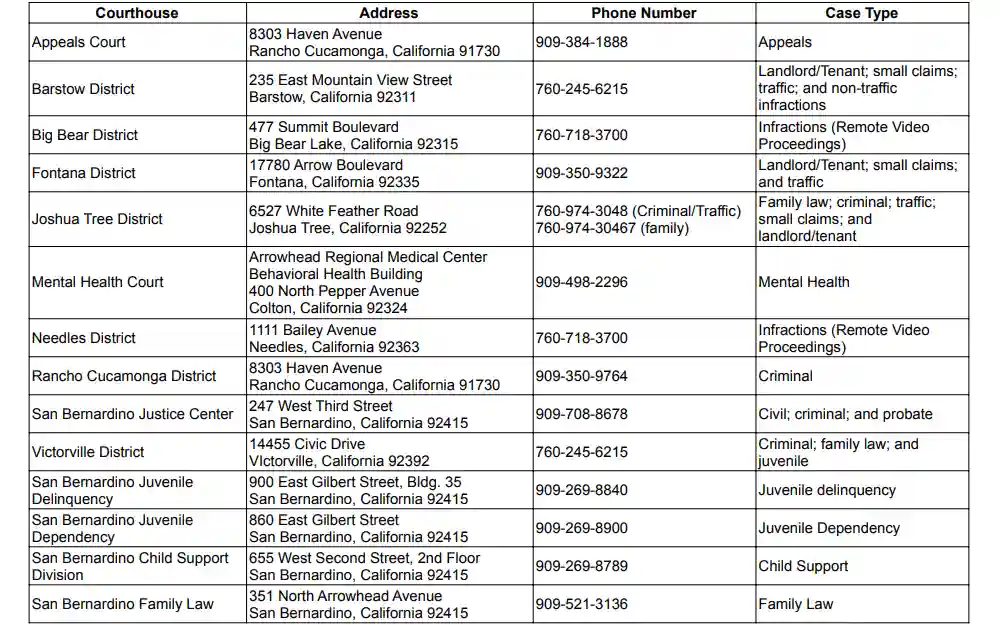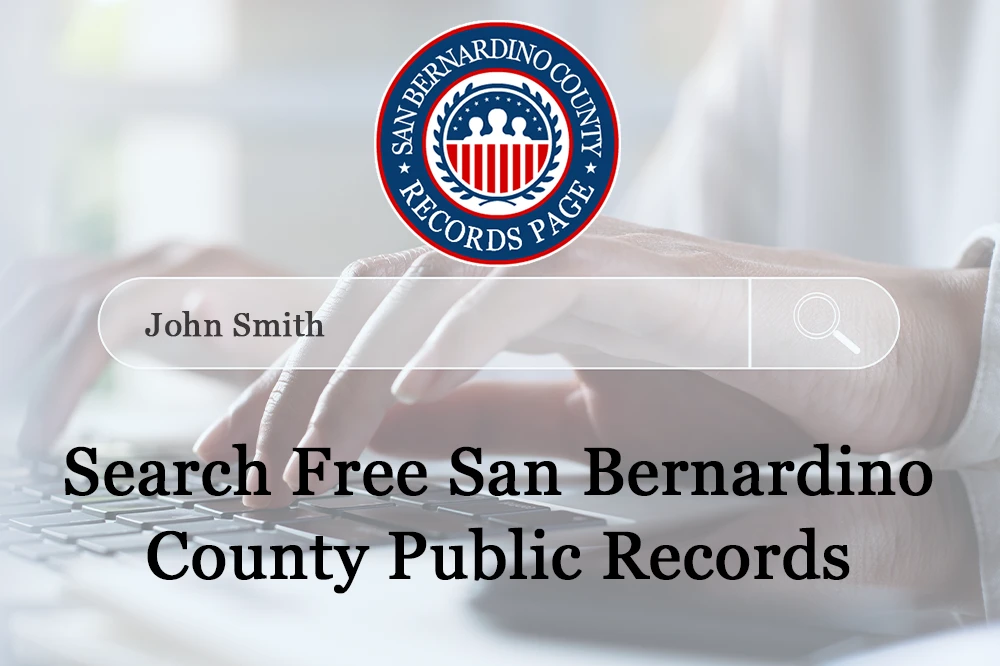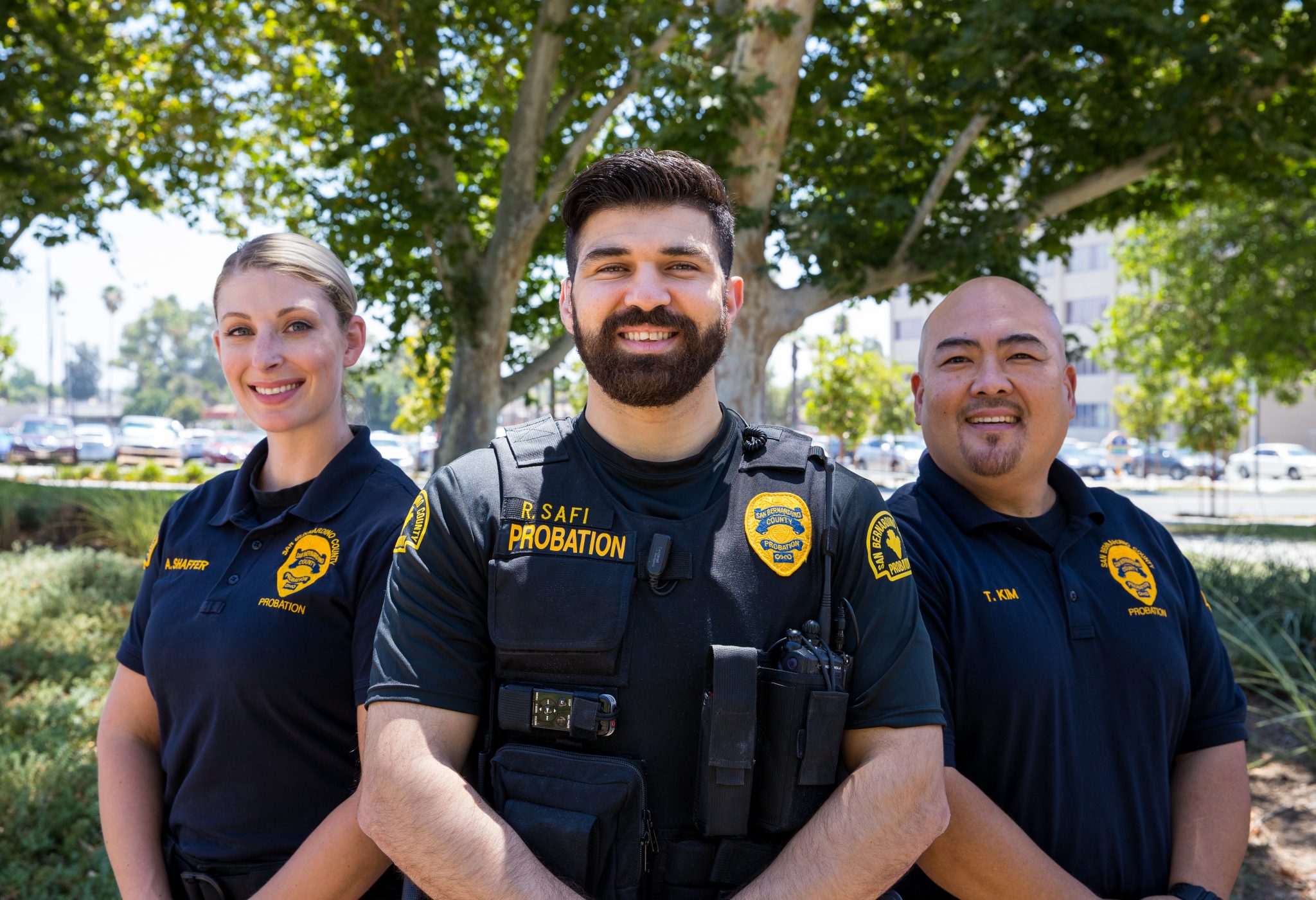When it comes to digging into the world of transparency and accountability, San Bernardino County public record is your golden ticket. Whether you're a journalist hunting for the next big story, a curious citizen looking to uncover hidden truths, or someone trying to verify facts, this treasure trove of information has got you covered. Think of it like a digital vault filled with everything from court cases to property records, all waiting to be discovered. So, buckle up, because we're diving deep into the nitty-gritty of what makes this system tick.
You might be wondering, why does San Bernardino County have such a robust public record system? Well, my friend, it's all about giving power back to the people. In a world where information is king, having access to these records ensures that everyone has a fair shot at understanding what's really going on in their community. And trust me, there's a lot more than meets the eye. From uncovering shady business deals to tracking down long-lost relatives, the possibilities are endless.
Now, before we dive deeper, let me give you a quick heads up. Navigating the world of public records can feel like trying to find a needle in a haystack, but don't worry. This guide will be your trusty compass, leading you through the maze of data and helping you make sense of it all. So grab a cup of coffee, sit back, and let's unravel the mysteries of San Bernardino County public record together.
Read also:Uncovering The Best Storage Solutions In Decatur Tx
What Exactly Are San Bernardino County Public Records?
Alright, let's get down to business. San Bernardino County public records are basically official documents and information that are maintained by government agencies within the county. These records include a wide range of topics, from birth and death certificates to marriage licenses, property deeds, and even criminal records. Think of them as the breadcrumbs that help you piece together the story of someone's life or a community's history.
But here's the kicker – these records aren't just for show. They serve a crucial purpose in promoting transparency and accountability within the government. By making this information accessible to the public, San Bernardino County ensures that citizens have the tools they need to stay informed and engaged. Whether you're checking on a potential tenant's background or researching historical events, these records are your best bet for finding the truth.
And guess what? Thanks to advancements in technology, accessing these records has never been easier. With just a few clicks, you can search through databases, download documents, and even request specific information directly from the county's official website. It's like having a personal librarian at your fingertips, ready to assist you with all your information needs.
Why Should You Care About San Bernardino County Public Record?
Now, you might be thinking, "Why should I bother with all this public record stuff?" Well, my friend, let me tell you why. Understanding and utilizing San Bernardino County public records can have a significant impact on your life, whether you realize it or not. For starters, these records can help you make informed decisions, protect your assets, and even safeguard your family's well-being.
Let's say you're in the market for a new home. Before you sign on the dotted line, wouldn't you want to know if the property has any hidden liens or legal issues? Or maybe you're considering hiring a new babysitter. Wouldn't it give you peace of mind to check their background first? These are just a couple of examples of how public records can play a vital role in your everyday life.
Plus, let's not forget about the bigger picture. Access to public records empowers citizens to hold their government accountable. It allows us to question authority, demand transparency, and ensure that those in power are acting in our best interests. In a world where misinformation runs rampant, having access to verified, factual information is more important than ever.
Read also:Fitzpatrick Wife Golfer The Inspiring Story Of Sarah Fitzpatrick And Her Golf Journey
How to Access San Bernardino County Public Record
Alright, so you're convinced that San Bernardino County public records are worth exploring. But where do you even start? Fear not, because I'm about to break it down for you step by step. First things first, you need to know where to look. The county's official website is your best bet for accessing these records. They've got a dedicated section specifically for public records, complete with search tools and instructions.
Now, depending on the type of record you're looking for, the process may vary slightly. For example, if you're searching for property records, you'll want to head over to the Assessor-Recorder's Office. On the other hand, if you're digging into criminal records, the Sheriff's Department is the place to be. Each department has its own set of guidelines and procedures, so make sure to familiarize yourself with them before diving in.
And here's a pro tip – don't underestimate the power of a good old-fashioned phone call. Sometimes, reaching out to the appropriate department can save you a ton of time and hassle. The folks working there are usually more than happy to assist you and answer any questions you might have. Just remember to be polite and patient – they're only human after all.
Top Tips for Efficient Record Searches
- Start with the basics – the more information you have, the better your chances of finding what you're looking for.
- Use specific keywords and filters to narrow down your search results.
- Keep detailed notes of your search history – you never know when you might need to revisit a particular record.
- Be patient – some searches may take longer than others, especially if you're dealing with older or less organized records.
Understanding the Types of Records Available
Alright, let's talk about the different types of records you can expect to find in San Bernardino County's public record database. As I mentioned earlier, the scope is pretty vast, covering everything from birth and death certificates to marriage licenses and criminal records. But let's break it down a bit further, shall we?
First up, we've got vital records. These include birth and death certificates, marriage licenses, and divorce decrees. They're the building blocks of a person's life story, providing essential information about key events. Next, we have property records, which include deeds, mortgages, and tax assessments. If you're interested in real estate or just curious about your neighbor's house, this is the section for you.
Then there's the criminal record section, which contains information on arrests, convictions, and court cases. This is where things can get a little dicey, as some records may be sealed or restricted due to privacy concerns. But fear not, because there are still plenty of ways to access the information you need, as long as you know where to look.
Common Misconceptions About Public Records
Now, before we move on, let's clear up a few common misconceptions about public records. For starters, not all records are created equal. Some may be more difficult to access than others, especially if they involve sensitive or confidential information. Additionally, just because a record is public doesn't mean it's automatically available online. Some records may still require a physical visit to the appropriate department or office.
Another misconception is that public records are always accurate. Unfortunately, mistakes can and do happen. That's why it's always a good idea to double-check the information you find and verify it with multiple sources whenever possible. And last but not least, don't assume that just because a record isn't immediately available, it doesn't exist. Sometimes, it just takes a little extra effort and persistence to uncover the truth.
Legal Considerations and Privacy Concerns
Alright, let's talk about the elephant in the room – legal considerations and privacy concerns. While San Bernardino County public records are a valuable resource, it's important to remember that there are laws and regulations governing their use. For example, the Freedom of Information Act (FOIA) allows citizens to request access to certain government records, but there are limitations and exemptions to consider.
Additionally, some records may be sealed or restricted due to privacy concerns. This is especially true when it comes to sensitive information, such as juvenile records or certain medical records. It's crucial to respect these boundaries and understand the legal implications of accessing and using public records. After all, just because the information is out there doesn't mean it's free for the taking.
And let's not forget about ethical considerations. While it's perfectly legal to access public records, it's important to use this information responsibly and respectfully. Always consider the potential impact your actions may have on others and strive to maintain a sense of integrity and professionalism in all your endeavors.
Real-Life Examples of Public Record Usage
To give you a better idea of how public records can be used in real life, let's take a look at a few examples. First up, we have the case of a local journalist who used public records to uncover a massive corruption scandal involving a prominent politician. By piecing together court documents, financial records, and property deeds, they were able to expose the truth and hold those in power accountable.
Next, we have the story of a family reunion that was made possible thanks to public records. A woman searching for her long-lost siblings was able to track them down using birth certificates and marriage licenses. It's a heartwarming reminder of the power of information and the connections it can help us forge.
And last but not least, we have the tale of a small business owner who used public records to verify the credentials of potential employees. By conducting thorough background checks, they were able to ensure the safety and security of their business and its customers. These are just a few examples of how public records can make a real difference in people's lives.
Best Practices for Responsible Record Usage
- Always respect privacy and confidentiality when accessing public records.
- Use the information responsibly and ethically, keeping in mind the potential impact on others.
- Verify the accuracy of the information before making any decisions based on it.
- Stay informed about the latest laws and regulations governing public record access and usage.
Future Developments in Public Record Systems
So, what does the future hold for San Bernardino County public record systems? Well, with advancements in technology and increasing demands for transparency, we can expect to see some exciting changes on the horizon. For starters, many counties are moving towards fully digital systems, making it easier than ever to access and search through records online.
Additionally, there's a growing push for standardization and interoperability between different systems and databases. This means that in the future, you may be able to search for records across multiple counties or even states with just a few clicks. It's an exciting time to be involved in the world of public records, and I can't wait to see what the future holds.
Final Thoughts and Call to Action
Well, there you have it – a comprehensive guide to San Bernardino County public record. From understanding the basics to navigating the system and utilizing the information responsibly, we've covered it all. Remember, public records are a powerful tool that can help you make informed decisions, protect your assets, and even uncover hidden truths.
So, what are you waiting for? Head over to the county's official website and start exploring the wealth of information at your fingertips. And don't forget to share this article with your friends and family – the more people who understand the importance of public records, the better off we all are. Together, let's promote transparency, accountability, and a brighter future for everyone.
And if you have any questions or comments, feel free to drop them below. I'd love to hear your thoughts and experiences with San Bernardino County public record. Until next time, stay curious and keep digging for the truth!
Table of Contents
- Uncovering the Secrets of San Bernardino County Public Record
- What Exactly Are San Bernardino County Public Records?
- Why Should You Care About San Bernardino County Public Record?
- How to Access San Bernardino County Public Record
- Understanding the Types of Records Available
- Legal Considerations and Privacy Concerns
- Real-Life Examples of Public Record Usage
- Future Developments in Public Record Systems
- Final Thoughts and Call to Action
- Table of Contents
- Top Tips for Efficient Record Searches
- Common Misconceptions About Public Records
- Best Practices for Responsible Record Usage


